In the world of gold trading, certification plays a crucial role in ensuring the authenticity and quality of the precious metal. Particularly in regions like Africa, where the gold market is thriving, it’s essential to understand the significance of proper certification and how it can protect you from fraud. This article will explain why certification is so important and how to avoid falling victim to fake gold test reports.
1. What Constitutes a Legitimate Gold Testing Certificate?
A legitimate gold testing certificate provides a comprehensive and verified analysis of the gold’s purity and authenticity. Here’s what you should expect from a reliable certificate:
- Test Methodology: The certificate should clearly specify the method used for testing (e.g., fire assay, acid test, electronic testing). Different methods provide varying levels of accuracy, and knowing this will give you confidence in the results.
- Purity Level: The certificate should indicate the gold’s purity, usually expressed in karats (e.g., 24K, 22K) or as a percentage (e.g., 99.9% pure).
- Weight: A credible certificate will list the exact weight of the gold being tested. This is crucial, especially when purchasing or selling in bulk.
- Test Date: Ensure the certificate is current. Gold can change in quality over time, and outdated certificates may not reflect the true value of the gold.
- Assay Office and Tester Information: The certificate should contain the name of the assay office or testing facility and the credentials of the person who conducted the test. Reputable testers are certified professionals with verifiable credentials.
A genuine certificate is an essential document in the gold trading industry, providing you with the assurance that you’re dealing with a trustworthy source.
2. How to Verify a Gold Testing Certificate’s Authenticity
While certificates are important, they can also be forged. To protect yourself from fraud, always verify the authenticity of a certificate before relying on it. Here’s how:
- Cross-check the Assay Office: Verify that the assay office or testing facility listed on the certificate is reputable. Many countries have a regulatory body that accredits gold testing labs. Look for a recognized logo or accreditation mark.
- Verify the Tester’s Credentials: Ensure the tester is certified and has a good reputation within the industry. Check if they belong to professional associations or have received industry certifications.
- Request Proof of Methodology: Ask for additional documentation or a detailed explanation of the testing method used. A reputable tester should have no problem providing this.
- Use Independent Verification: If you are uncertain, consider using a second, independent lab to verify the gold’s purity. This step can help you confirm that the original certificate is accurate.
By taking these simple steps, you can ensure that the certificate you receive is legitimate and not part of a scam.
3. The Role of Independent Third-Party Testing Agencies
One of the best ways to avoid fake gold test reports is to work with an independent third-party testing agency. These agencies specialize in gold testing and offer unbiased, accurate results. They are not affiliated with any buyer or seller, which ensures that the test results are impartial.
Independent third-party agencies usually have high-quality equipment and use scientifically validated testing methods, such as fire assay, to determine the purity of gold. They can also provide you with official certificates that are recognized by the industry.
When selecting a testing agency, make sure they are accredited by relevant industry bodies. Reputable agencies have a history of working with gold traders and can provide transparent, reliable results.
4. The Dangers of Fake or Unverified Test Reports
The gold market, especially in developing regions like Africa, can be rife with fraudulent activities. One common scam involves fake test reports that mislead buyers into purchasing low-quality gold at high prices. Some fraudsters will create convincing fake certificates that list inaccurate gold purity levels or provide false information about the test method used.
Here are the dangers of relying on fake test reports:
- Financial Loss: If you purchase gold based on fraudulent test reports, you risk losing your money when the gold’s true quality is revealed.
- Legal Consequences: Trading with counterfeit gold can lead to legal issues, especially if you unknowingly sell fake gold to other buyers.
- Damaged Reputation: If you’re a gold trader or investor, dealing with fake gold can damage your reputation, making it harder to build trust with future business partners.
The best way to avoid these risks is by working with reputable testers and ensuring the authenticity of all test reports.
5. Tips for Ensuring Proper Certification
Here are some tips to help you ensure that the gold you’re trading is properly certified:
- Work with Accredited Testing Labs: Always use labs or assay offices that are recognized by national or international gold associations.
- Request Documentation: Don’t just take the test report at face value. Ask for documentation that verifies the authenticity of the testing process and the results.
- Know Your Seller or Buyer: When trading gold, build relationships with trustworthy buyers and sellers who understand the importance of proper certification and transparency.
- Double-check Everything: Don’t rush into a deal. Make sure you’ve checked the certification and test reports thoroughly before making any financial commitments.
6. Conclusion
Certification is one of the most important aspects of gold trading, ensuring that both buyers and sellers can trust the authenticity and value of the gold being exchanged. However, with the rise of fraud and counterfeit test reports, it’s crucial to verify the legitimacy of any certificate you receive. By working with accredited third-party testing agencies, verifying the details of your gold’s certification, and taking the necessary precautions, you can protect yourself from scams and confidently trade in gold.
Remember, when it comes to gold, authenticity is everything. Always prioritize certification and transparency to safeguard your investments.
